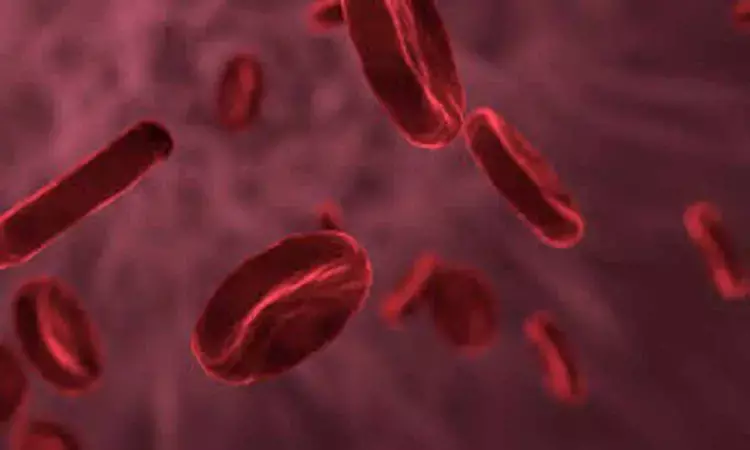- Home
- Medical news & Guidelines
- Anesthesiology
- Cardiology and CTVS
- Critical Care
- Dentistry
- Dermatology
- Diabetes and Endocrinology
- ENT
- Gastroenterology
- Medicine
- Nephrology
- Neurology
- Obstretics-Gynaecology
- Oncology
- Ophthalmology
- Orthopaedics
- Pediatrics-Neonatology
- Psychiatry
- Pulmonology
- Radiology
- Surgery
- Urology
- Laboratory Medicine
- Diet
- Nursing
- Paramedical
- Physiotherapy
- Health news
- Fact Check
- Bone Health Fact Check
- Brain Health Fact Check
- Cancer Related Fact Check
- Child Care Fact Check
- Dental and oral health fact check
- Diabetes and metabolic health fact check
- Diet and Nutrition Fact Check
- Eye and ENT Care Fact Check
- Fitness fact check
- Gut health fact check
- Heart health fact check
- Kidney health fact check
- Medical education fact check
- Men's health fact check
- Respiratory fact check
- Skin and hair care fact check
- Vaccine and Immunization fact check
- Women's health fact check
- AYUSH
- State News
- Andaman and Nicobar Islands
- Andhra Pradesh
- Arunachal Pradesh
- Assam
- Bihar
- Chandigarh
- Chattisgarh
- Dadra and Nagar Haveli
- Daman and Diu
- Delhi
- Goa
- Gujarat
- Haryana
- Himachal Pradesh
- Jammu & Kashmir
- Jharkhand
- Karnataka
- Kerala
- Ladakh
- Lakshadweep
- Madhya Pradesh
- Maharashtra
- Manipur
- Meghalaya
- Mizoram
- Nagaland
- Odisha
- Puducherry
- Punjab
- Rajasthan
- Sikkim
- Tamil Nadu
- Telangana
- Tripura
- Uttar Pradesh
- Uttrakhand
- West Bengal
- Medical Education
- Industry
Vitamin D deficiency, low BMD linked to sickle cell anemia in children, finds study

Egypt: A recent study has linked sickle cell disease (SCD) with vitamin D deficiency and low bone mineral density (BMD) in children. The findings of the study, published in the Egyptian Journal of Hospital Medicine, emphasizes the need for screening of vitamin D levels for all SCD patients.
Vitamin D and calcium are essential for bone metabolism. The low intake of calcium leads to a reduction in the ideal bone mass peak (determines growth failure) in SCD children. There is little information on BMD in children having SCD and its association with 25(OH)D levels. Mohamed Ahmed Badr, Departments of Pediatrics, Zagazig University, Sharkia, Egypt, and colleagues evaluated the relation between Vitamin D level and bone mineral density in children with sickle cell disease.
The cross-sectional study included 30 patients (14 males and 16 females) with SCD who were following up for over 6 months from February to August 2018 at Pediatric Hematology outpatient clinics of Zagazig University Hospital.
Key findings of the study include:
- More than ¾ of the studied group has a deficient level of vitamin D (83.3%).
- BMD of L1-L4 is normal in only 13.3% of the studied patients and BMD of total body is normal in the fifth of the studied patients (20%).
- Correlation is non-significant between bone markers and Z-score of BMD, Z-score of BMD L1-L4, and vitamin D level among the studied sickle cell disease cases.
"Vitamin D deficiency is a major nutritional health problem in patients with sickle cell disease. Emphasizes the need for vitamin D level screening for all SCD patients. Children with SCD have low BMD. There was no statistically significant correlation between vitamin D and (Z-score of BMD L1-L4, Z-score of BMD total body, Osteocalcin, and Beta cross lab) among the studied sickle cell disease cases," concluded the authors.
The study, "Assessment of Vitamin D Level and Osteoporosis in Children with Sickle Cell Anemia," is published in the Egyptian Journal of Hospital Medicine.
Dr Kamal Kant Kohli-MBBS, DTCD- a chest specialist with more than 30 years of practice and a flair for writing clinical articles, Dr Kamal Kant Kohli joined Medical Dialogues as a Chief Editor of Medical News. Besides writing articles, as an editor, he proofreads and verifies all the medical content published on Medical Dialogues including those coming from journals, studies,medical conferences,guidelines etc. Email: drkohli@medicaldialogues.in. Contact no. 011-43720751


